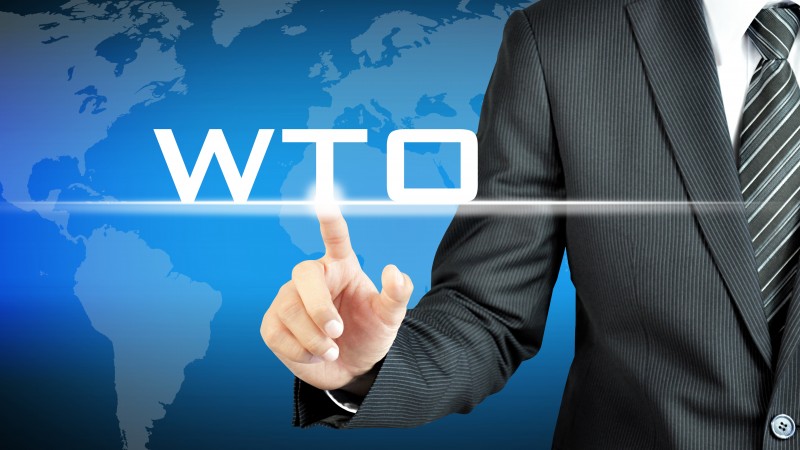Trump's excessive agricultural subsidies exceed WTO limits
August 5, 2020 at 8:44 AM ,
Der AUDITOR

The US trade conflict with China is not only causing a sharp drop in exports, but is also putting exporters and US farmers in trouble. Farm subsidies issued by the Trump administration are heavily contested as they exceed WTO limits. Joseph Glauber, former top economist of the US Department of Agriculture (USA) and currently with the International Food Policy Research Institute, is concerned over the Trump administration's political motivations in permitting the USDA to give farmers checks without oversight. There is said to have been a committee hearing of the US Senate. Increasing doubts are also been raised over the feasibility of the phase one deal.
Agricultural subsidies are generally criticised, especially when they distort trading. In an attempt to curb trade-distorting domestic support the WTO Agreement on Agriculture came into force in 1995. The agreement caps agricultural subsidies in amber box payments. US agricultural subsidies are not permitted to exceed USD 19.1 billion. All members of the WTO are bound to the agreement, which has generally worked well so far.
US subsidies far exceed WTO limits
The economic conflict with China has, however, put the US in a difficult situation. After Trump introduced sanctions on China and US agricultural export dropped, the farmers have been more reliant of state subsidies since 2018. Severe criticism is expected because farm subsidies far exceed WTO limits, as Glauber has recently stated in hearing in front of the Agricultural Committee of the US Senate. The Trump adiminstration has payed out USD 28 billion in farm subsidies in 2018 and 2019. Along with the price and income support programme and crop insurance programmes total subsidies even amount to USD 32 billion. Glauber is also convinced that the subsidies are politically motivated as mainly farmers in Trump affiliated states are receiving the largest payouts. The Trump administration is further engaged in paying out USD 16 billion this year to compensate for the impact of the pandemic, but critics are convinced that actual payments will range much higher in the months leading up to the presidential election.
Phase one deal sets impossible targets
Trump has threatened to withdraw from the WTO several times since 2018, and has slowed down dispute settlements by blocking new members in the WTO arbitration court. The USA have, however, greatly benefitted from the WTO Agricultural Agreement in the past with US agricultural exports doubling since 1995. Since China, however, responded to US punitive tariffs on Chinese products in 2018 by imposing retaliatory tariffs on US agricultural imports, export earnings for US farmers have plummeted. In 2017, the value of agricultural exports to China ranged at USD 19.5 billion. In 2018, this value, however, fell to USD 9.1 billion. Soybean exports to China declined to the lowest level witnessed since 2006. This is one of the reasons why the Trump administration pushed for a phase one deal that includes agricultural products with China agreeing to import US agricultural products worth USD 32 billion in 2020 and worth USD 39 billion in 2021. Shipments have, however, fallen well short of this agreement so far with trading activities only valued at USD 7.5 billion form January to May 2020. To meet the agreement China would have to step up US agricultural imports sharply in the second half of the year and even more so in 2021, a thing which is next to impossible.
If the US withdraws from the WTO this would only help Beijing. Glauber stresses the importance of the trading system, including the arbitration court, in view of the growing global demand for food. In what way the WTO will react to Trump's excess subsidy spending will certainly reflect the shifts and tensions perceptible in the political and economic world order.



